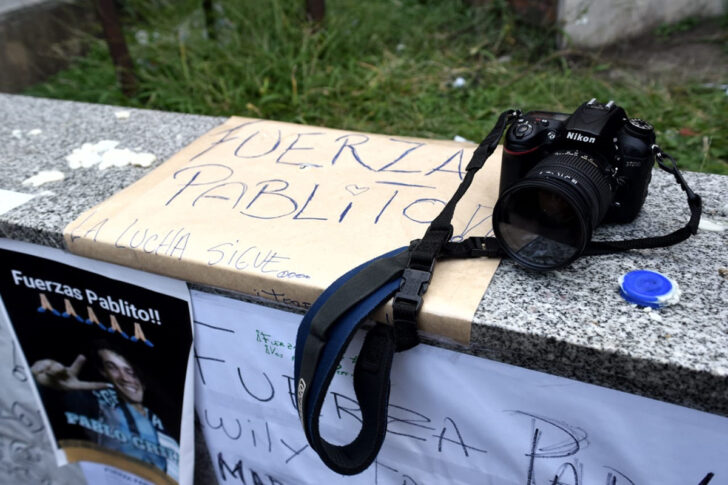The Milei administration has created a particularly hostile climate for journalism, with structural measures that affect freedom of expression, access to information and the plurality of the media system. The president’s verbal attacks provide fertile ground for a violent social scenario. Since December 2023, there have been physical and verbal attacks on journalists, the government has silenced public media, and it has taken administrative decisions that restrict the right to communicate and to be informed on an equal basis.
March 2025 marked a year since the closure of Agencia Télam, the second-largest Spanish-language news agency after Spain’s EFE, which is also publicly owned. This means that practically everything that happens far from the city of Buenos Aires is no longer national news. We are experiencing a federal disconnect in a vast country. We no longer have informational cables coming in from different corners of Argentina, or the photographs or articles on politics, culture, the economy or sports. Télam’s closing also entailed suspended access to its documentary and audiovisual archive.
The national government’s policies on the right to communication are undercutting the plurality and diversity of voices and are drastically restricting the population’s right to be informed. Private media enterprises are increasingly moving to a business model in which subscriptions are required to access information. And the government also stopped supporting non-commercial media outlets, which tend to be communitarian, educational or cultural.
With fiscal adjustment as its banner and ultimate aim, the national government suspended all official advertising for institutional campaigns, such as access to the Universal Child Allowance (Asignación Universal por Hijo). This measure has an impact on the population and on commercial and non-commercial media outlets, which have lost sources of income. Only companies with other side businesses can replace those funds. In addition, state-financed corporations such as YPF and Aerolíneas Argentinas upped their advertising spending without any criteria for distribution and using broad discretion in order to benefit some companies. Modifications to the Law on Access to Information keep journalists from obtaining access to information on the use of advertising funds.
The main problem in this scenario is the wear and tear on democracy. Without the circulation of news, ideas, information, opinions, and without broad participation along the entire chain of activities involved in the right to communication, public space shrinks and deteriorates.
Stigmatization and violent discourses coming from the State
In parallel, President Milei uses his X account or interviews he grants to insult and discredit journalists who are critical or who are not aligned with his views regarding the government’s strategies. In recent days, he accused the media of carrying out a disinformation campaign on his economic policies. He affirmed that “people do not hate these hit men, with credentials of supposed journalists, enough.” After that, the director of El Destape website and radio program, Roberto Navarro, was brutally assaulted on the street. The president also insulted La Nación newspaper columnist Joaquín Morales Solá, saying “his pen poisons the Argentine people.” Meanwhile, a photographer from Tiempo Argentino, Antonio Becerra, was subjected to public intimidation by one of the government’s main advisors.
These attacks took place in the last few weeks alone. And, as in Navarro’s case, they may not be confined to rhetoric, since they create an environment that is conducive to physical violence.
On Thursday, May 8, during a program on the Carajo streaming channel, the president made a “joke.” He asked: “Do you have there the names of the journalists I have to put in jail?” On Friday, May 9, he filed a criminal complaint for libel and slander against three journalists: Viviana Canosa, Ari Lijalad and Carlos Pagni. These criminal offenses tend to be used by the highest state authorities to inhibit the work of the press.
A 2025 Reporters Without Borders report puts Argentina at number 87 in its global press freedom ranking. The country dropped 47 places in just two years. The organization warned: “President Javier Milei has stigmatized journalists, dismantled public media and weaponized state advertising.”
The work of the press at protests
The “public order” protocol 943/2023 makes any public protest a crime. The threat to those who protest often begins with social media posts by government officials. The practice of journalism is also being jeopardized in the current context of repression. On March 12, during a protest over retirement pensions, photojournalist Pablo Grillo – who had entered the protest area with his camera to cover the demonstration and the security operation – was struck in the head by a tear-gas canister. In front of him was a row of Gendarmerie officers, from which the tear gas was fired, that was advancing alongside water cannon trucks belonging to the National Gendarmerie and the Argentine Federal Police.
Judicial testimony by journalists and photographers shows that conducting this work has become increasingly difficult. While covering demonstrations, they are met with pepper spray, tear gas, rubber bullets to their bodies – and in some cases, their faces. They are often forced to leave the scene. The security forces, according to these statements, do not distinguish between protesters and journalists. We have documented dozens of journalists injured in protests.
These incidents take place in the context of a policy of repression that also affects the ability to record or report on public demonstrations. Along with the stigmatization, the attacks, the harassment of journalists and the dismantling of public media, this gives rise to a scenario of democratic deterioration. Reversing this process is an urgent, collective task.

